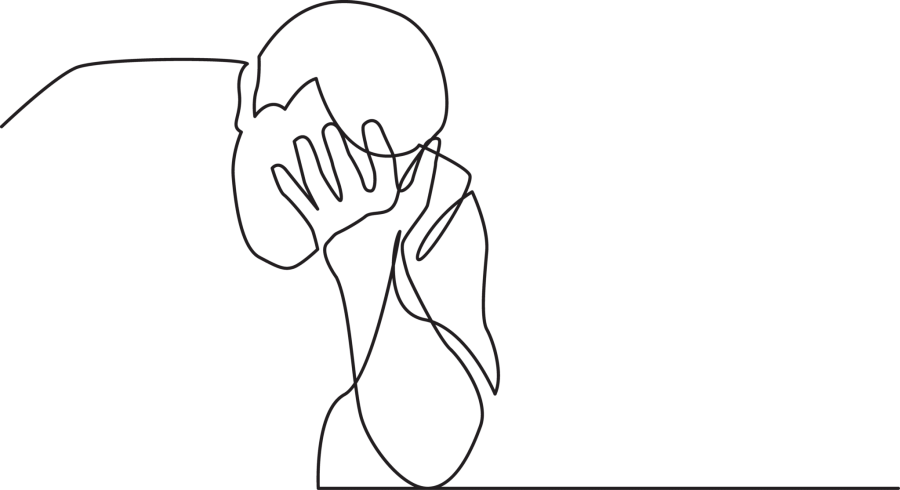“I’m in crisis!”
Mental Health Institute Berlin
ADJUSTMENT DISORDERS
Life is full of changes. A separation, a job loss, a move, the birth of a child – some drastic events present us with great challenges and we have to adapt to completely new circumstances. Most people manage to do this after a while. Some, however, have significant difficulties adapting to it and experience anxious and depressive symptoms and a clear impairment in everyday life.
We speak of an adjustment disorder when symptoms similar to depressive symptoms or symptoms of anxiety disorders occur within a month of a life-changing event, but do not meet the criteria for depression or an anxiety disorder. Typical symptoms include worry, sadness, and loss of pleasure. Physical impairments such as abdominal pain, tension, difficulty concentrating, or cardiovascular problems may also occur. Affected people often withdraw from their social environment. The symptoms do not last longer than half a year.
OUR PROMISE
The Mental Health Institute (MHI) Berlin is a private clinic that offers modern and scientifically sound day-clinical and outpatient treatments to people with mental problems and suffering.
ADJUSTMENT DISORDERS
What causes an adjustment disorder? An adjustment disorder is a reaction to an identifiable psychosocial stress. These may include a breakup, job loss, bullying, a wedding, a move, the birth of a child, or the transition to retirement. A death, an accident, a serious illness or an operation can also be the cause of an adjustment disorder. Accordingly, these are not severe traumatic experiences, but rather stressful life changes.
The question is often raised by those affected why they have developed an adjustment disorder, but someone else with a comparable stress factor has not. In fact, several factors interact in the development of an adjustment disorder. One important aspect is the individual vulnerability of the person affected. If he or she has many resources, such as good social support, compensatory positive activities, and adequate daily structure, he or she is more resilient to critical life changes. If someone has more of an anxious nature, they are quicker to evaluate circumstances as threatening and more likely to feel overwhelmed. This would favor the development of an adjustment disorder.
By definition, an adjustment disorder does not last longer than six months. Sometimes, however, the symptoms can become entrenched and lead to a more severe mental illness, such as depression or anxiety. It is therefore advisable to take an adjustment disorder seriously and not to be afraid of seeking professional help.

How are adjustment disorders treated at MHI Berlin?
The first step is a clear diagnosis, in which the specific symptoms and their manifestation are recorded and other mental disorders such as depression, anxiety disorders, post-traumatic stress disorders or an acute stress reaction are excluded. Once the adjustment disorder has been diagnosed, an individual explanatory model is developed in which the personal susceptibility factors, the triggering factors and the maintaining factors are worked out. The aim is to understand the origins of the adjustment disorder and to work on the maintaining factors. Among other things, the goal is to identify and change dysfunctional behavioral and thought patterns, find a balance of activity and relaxation, and strengthen the social network. The long-term goal is always to make the affected person more resilient to future stress factors.
A modern treatment concept.
tailored to your needs.
In addition to psychotherapy in individual and group settings and medication with psychotropic drugs, there are other forms of treatment that have proven helpful for adjustment disorders. MHI offers psychoeducation, resilience and coping groups, as well as learning mindfulness and relaxation techniques, in addition to those mentioned above. In addition, sports and exercise therapy, also offered at MHI, have been shown to be appropriate for adjustment disorders. The entire treatment plan is individually tailored to the patient.
Information about patient admission at MHI Berlin
The MHI Berlin offers its services to patients of all private health insurances, as well as to those paying for their own treatment. Immediate admission to the day clinic is usually possible.
The beginning of our common path
For the fastest possible initial contact, please contact us by phone or use our contact form.
After you have contacted us, the MHI Berlin team will contact you to arrange an appointment for an initial interview as soon as possible. The initial interview forms the basis of the admission.
If no acute admission is required, MHI Berlin submits the application for cost coverage to the cost units in advance.
In acute cases, the MHI Berlin contacts the cost bearers directly after admission regarding the cost clarification.
In any case, the clinic assists you in all bureaucratic processes and thus simplifies and accelerates your admission to the clinic.

